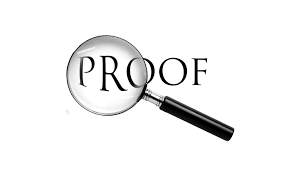Proof and citation – where to start
As I approached writing my monthly blog post, I had so many ideas of topics I could cover that my mind went into freefall and I couldn’t actually decide what to talk about. I’ve started about three drafts already. Should I talk about ‘Blogging’ which was our last topic at the Writing Group, or something a bit different?
I had asked members of the Writing Group what kind of things they liked to read in the journal or eNews. Apart from a few specific topics, group members preferred to learn about how to solve problems as well as read family stories about ordinary people, not the celebrities whom we constantly hear about.
Taking the notion of learning how to solve problems I’d thought I’d tell you about a joint presentation that Janice Cooper and I are  working on for the mini-seminar “Proof and Citation” in July. Jennifer Harrison is the third speaker. This seminar is a follow-on from the mini-seminar GSQ held in 2016. We are adopting a case-study approach as a means of demonstrating the processes we used to research a person’s life and to document the sources we used, the information we found, and the resulting evidence.
working on for the mini-seminar “Proof and Citation” in July. Jennifer Harrison is the third speaker. This seminar is a follow-on from the mini-seminar GSQ held in 2016. We are adopting a case-study approach as a means of demonstrating the processes we used to research a person’s life and to document the sources we used, the information we found, and the resulting evidence.
We used sources such as civil registration and parish records, census and electoral rolls. We searched Trove to find relevant newspaper articles and announcements. Other sources included immigration records and award of professional qualifications. Military service records often provide a wealth of information about an individual. It’s possible to search for an obituary, a will, and a final resting place. Some individuals kept diaries during their life and, depending upon the life experiences of the individual, their personal documents may be found in a variety of repositories, such as the National Library of Australia or a State Library, or in a private collection. We found a photo of the individual and these often give clues about the person? I like to research the family background of individuals whom I’m interested in, as this can often give further details about their life. In all of this research, it is important to cross-check what you find in one source with information that may be contained in another source.
As far as records are concerned, you need to consider who made the record, what is the source of the information in the record, why it was made, where it was made, and how reliable it is. Official records, and transcriptions of them, abound in errors, whether deliberate or accidental.
It’s an interesting exercise to research a person not associated with your family. For someone who has a ‘public persona’, basic personal details can usually be found quite easily online, via Google or Wikipedia, or in published texts. This is not always the case with someone without a ‘public persona’ and you have to work things out yourself. It doesn’t matter whether your person is well-documented or not, it’s good practice to cross-check all the information you find so that the evidence for your conclusions is strong.
So, in our presentation, we’ll be discussing the sources we used, the information we gleaned, and the evidence that supported our research. We’ll show you our method of citing sources, so you can find and verify our results. You can then use our examples as a basis for documenting your own research. As an aside, this seminar will help you to address the issues that Geraldine raised in her recent blog post about ‘junk genealogy’ and the need to validate your research.
Bookings are now open for the mini-seminar, which will be held at the Queen Alexandra Centre on Saturday 1 July from 9am to 12.30pm. I hope to see you there…
Until next time
Pauline

Comments
Proof and citation – where to start — No Comments
HTML tags allowed in your comment: <a href="" title=""> <abbr title=""> <acronym title=""> <b> <blockquote cite=""> <cite> <code> <del datetime=""> <em> <i> <q cite=""> <s> <strike> <strong>